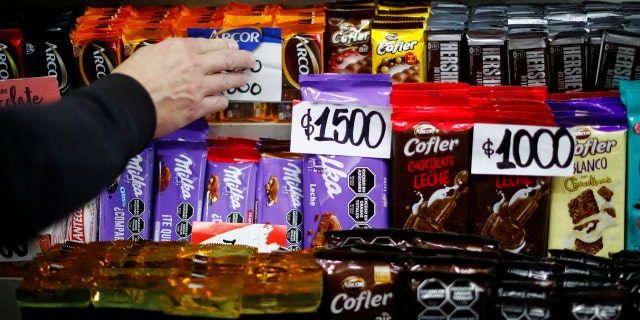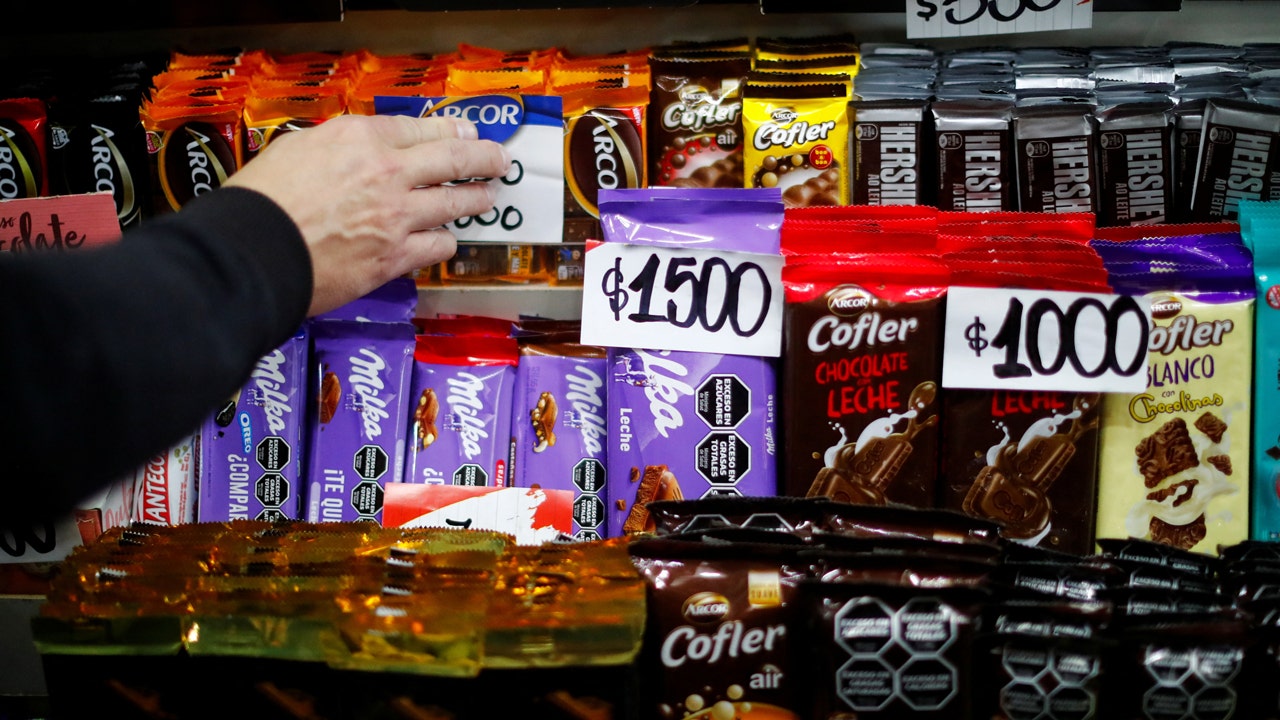-
The owner of a convenience store in Buenos Aires was shocked to discover a 60% surge in the prices of snacks, condiments, sodas, and ice creams since late July, as revealed by an updated price list received from his supplier.
-
This price adjustment was prompted by the outcome of the primary elections, which led to a rapid devaluation of the peso and an increase in interest rates.
-
An analysis of the price lists from a prominent national supplier by Reuters showed an average increase of 18% between July 26 and August 15.
Ernesto Acuna, a convenience store owner in Buenos Aires, was taken aback when he received the new price list from his supplier this week. The prices of snacks, condiments, sodas, and ice creams had risen by 60% since late July.
This updated price list reflected the consequences of the primary election shock, which resulted in a significant devaluation of the peso and an increase in interest rates. It highlights the immense challenge faced by Argentina to combat inflation, which is already at 113% and showing no signs of slowing down.
Acuna cited an example, saying, “An ice cream that used to cost 1,000 pesos, now costs 2,000.” He expressed uncertainty about how kiosko owners like him should respond to these price hikes, questioning whether prices should be increased daily and by how much.
The price lists analyzed by Reuters, provided by a major national supplier, showed an average increase of 18% between July 26 and August 15. While some prices remained unchanged, many experienced a hike of around 25%. Among the products, ice creams and desserts saw the steepest jumps, although variations were observed across different items.
The analysis indicates that wholesalers are swiftly raising their prices in response to the market volatility seen this week. This will contribute to further inflation in August as Argentina aims to avoid the hyperinflation experienced in the late 1980s.
These price adjustments impact small business owners and eventually trickle down to customers. Acuna highlighted that imported, scarce, or seasonal products see the highest increases.
In response to the higher wholesale prices, businesses across various sectors have quickly adapted by suspending special offers and, in some cases, even halting sales altogether.
Juan Pablo Spagnolo, another convenience store owner, stated that after initial increases of 40%-50% on Monday and Tuesday compared to the previous month, he received subsequent lists with more “reasonable” increases ranging from 15% to 25% by Wednesday. However, he acknowledged the unpredictable nature of the situation, as he said, “I’m telling you the reality of today, but the reality of next Monday is completely different.”

Convenience store owner Ernesto Acuna, 50, raises the price on the tags of chocolate bars in his store after the government devalued the peso, following Argentina’s primary elections, in Buenos Aires, Argentina, on Aug. 17, 2023. (REUTERS/Agustin Marcarian)
Even experienced business owners like Acuna are struggling to cope with triple-digit inflation, which experts predict will worsen in the lead-up to the general election on October 22. Javier Milei, a radical libertarian economist, has emerged as the front-runner for this election.
Since March, business owners have been receiving updated price lists from their suppliers twice a month, twice as frequently compared to a year ago, according to Acuna. Any significant events, such as the devaluation on Monday, can result in additional price lists. The hikes witnessed now are much more significant than in previous years, reaching at least 10% per month, with some products experiencing even larger increases.
Business owners then face the challenge of deciding how to pass on these price hikes to their customers. They must strike a balance between maintaining profitability and retaining their clientele. Acuna mentioned that some owners implement gradual price increases to avoid scaring away customers, while others accept losses on certain products to prioritize customer loyalty.
Acuna mentioned the various strategies used by business owners, such as trying to find cheaper suppliers, securing good prices, and running promotions to attract customers. He emphasized the lack of alternatives and said, “There’s no other option” but to keep striving to keep people coming to their kiosko.
With this week’s price increases, Maria Leguizamon, a frequent customer at Acuna’s store, expressed her need to reduce spending by purchasing less meat and fewer treats. She acknowledged that the pricing situation has become outrageous but did not blame the store owners and small businesses who are simply trying to survive.
CLICK HERE TO GET THE FOX NEWS APP
“Prices have gone through the roof, in every way,” Leguizamon said, highlighting the madness of the situation she and others are experiencing.
Denial of responsibility! VigourTimes is an automatic aggregator of Global media. In each content, the hyperlink to the primary source is specified. All trademarks belong to their rightful owners, and all materials to their authors. For any complaint, please reach us at – [email protected]. We will take necessary action within 24 hours.


